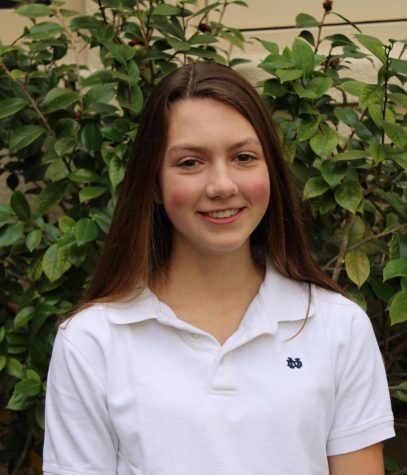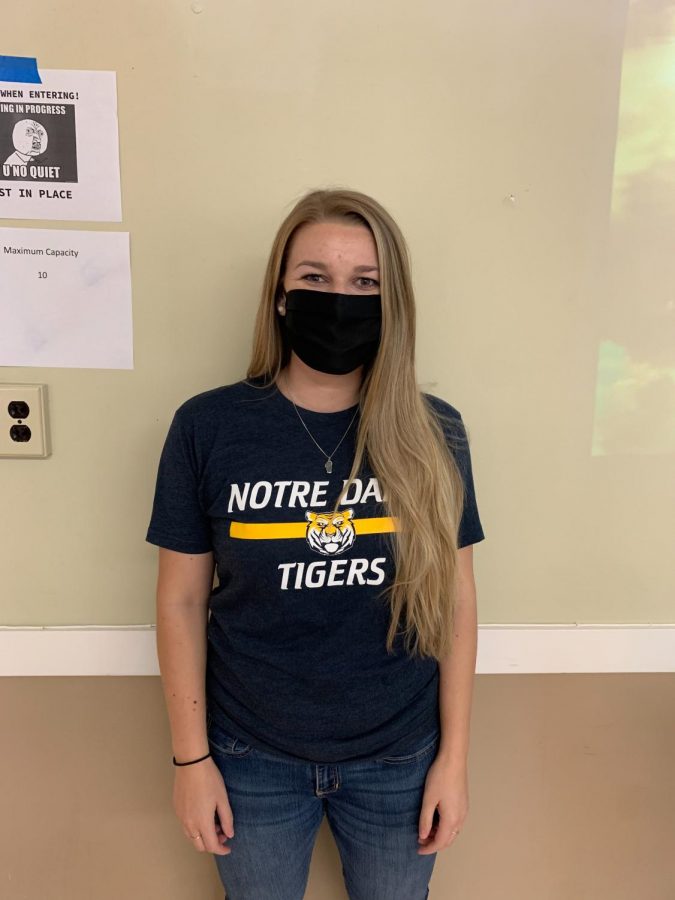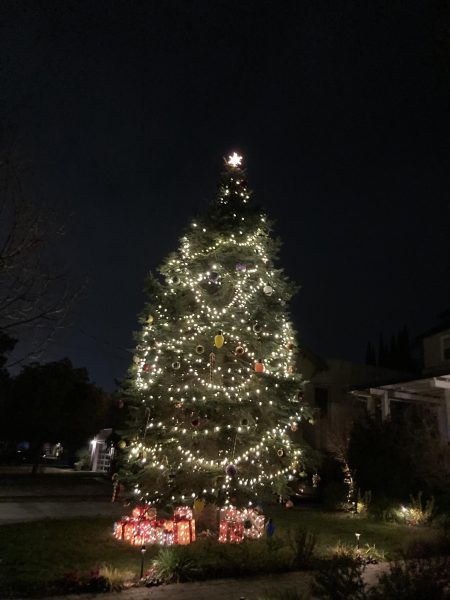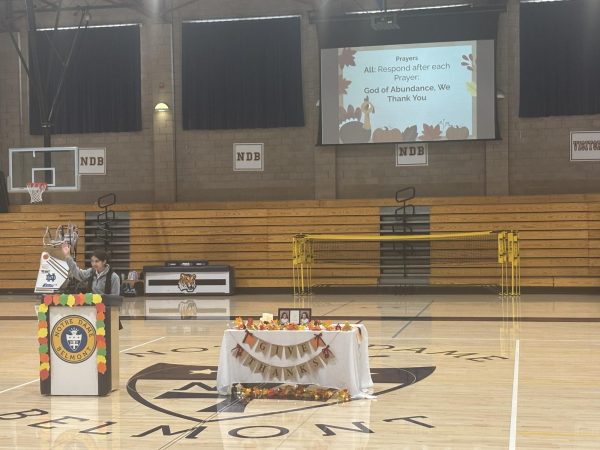Q&A with a guidance counselor on suicide awareness
The Catalyst / Peyton Daley
Michelle Campusano is a new guidance counselor at NDB this year.
The Catalyst (TC): What do you think is the importance of Suicide Prevention Month?
Michelle Campusano (MC): The importance of it is to build the awareness, and kind of educate everyone of the circumstances of risk factors, key signs to look out for, and to educate on how we can learn to prevent it.
TC: Why do you think it’s important to raise awareness about the topic?
MC: So, suicide in itself is a pandemic. I mean, we’ve lived through one and we know how insane that was, but suicide alone is a pandemic, especially within our youth. And so it’s important to prevent it because it’s 100% preventable.
TC: Why do you think it’s especially important during the pandemic to address it?
MC: Yeah, so during COVID we saw that huge decline in mental health, as well as advocacy and mental health has always had that negative stigma anyway. You know, you shouldn’t be getting help or it’s embarrassing, but it’s really not. Having healthy mental health is a really key sign. So during COVID, a lot of people were by themselves, and they got into their own thoughts or they realized that their home situation wasn’t the best. Also, we have a lot of situations where students would go home and a home wasn’t a safe place, school was a safe place. So there’s so many key factors that come with that and that’s why we did see the rise of suicides, and it’s really tragic because as educators and as a school, we were there to kind of help students and make sure that they knew they’re being cared for loved, but if they were at home in a really bad situation they didn’t have that anymore.
TC: What do you think that high school students can do to help others in their community or other friends that are struggling with their mental health?
MC: I think the biggest thing is being kind. I mean, there’s so many situations where you don’t know what the other person is doing… mental health is a really silent disease and so we really want to make sure that what we can do in our community is to be kind and to always advocate… it’s no longer “someone committed suicide” because they didn’t commit a crime by themselves, it is “they passed away by suicide.”
TC: And what would you recommend for students who are struggling with their mental health?
MC: Speak to someone. I know that here at school, we have those exceptions of, you know, we keep confidentiality except for if you want to hurt yourself, if you want to others, or others are hurting you, but still come and tell us so we can get you the help, and that’s the most important thing is still letting someone know, because we want you to have the end of the day, you know. That’s the biggest thing, so you, we want to make sure that you’re getting the resources.
TC: And who do you think would be the best people to talk to?
MC: I think.. in our school, the administration, any teachers, your school counselors always, but any trusted adult, really that’s the biggest thing is anyone that you trust, let them know and they’ll know what to do.
TC: What is the school doing to recognize the month?
MC: Yeah, so we were actually just talking about this. So, we have been doing mindful minutes every day, to kind of reflect on our own mental health and respect for others’ mental health, and we’re trying to get the TVs up and running, but right now we’re having issues, but we’re having PowerPoints regarding resources and nice quotes, as well as Suicide Awareness and Prevention Month, and then we are helping with advocating for the Walkout Against Darkness. We also did buy some bracelets, we heard that a few years ago bracelets did really well as a reminder for prevention for suicide awareness, so on one side it says “You are loved and your matter”. So those will be coming, and then we are going to be doing some educational things with our faculty and staff as well.
TC: And how do you think schools can help teenagers specifically with their mental health in general?
MC: So, schools in general, I think it’s just building that trusting relationship with all students, as well as making sure that they’re approachable. I think that’s the biggest one as well, making sure that the open door policy is there so students can come in and drop by at any time, giving resources both school and community wide, and education is such a big part — educating the faculty and staff, as well as educating parents.

Peyton Daley is a senior and this is her third year as a Catalyst writer. She served as Arts & Life Editor her sophomore year and Managing Editor her...






